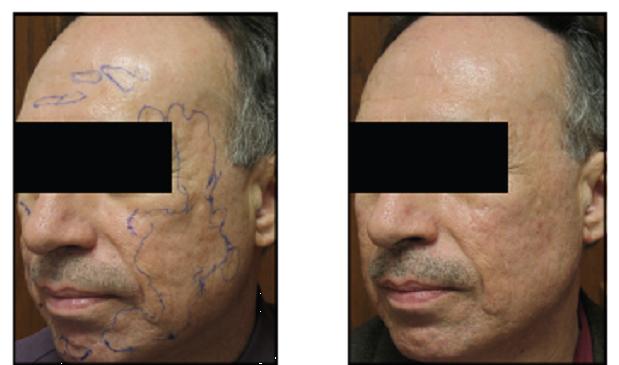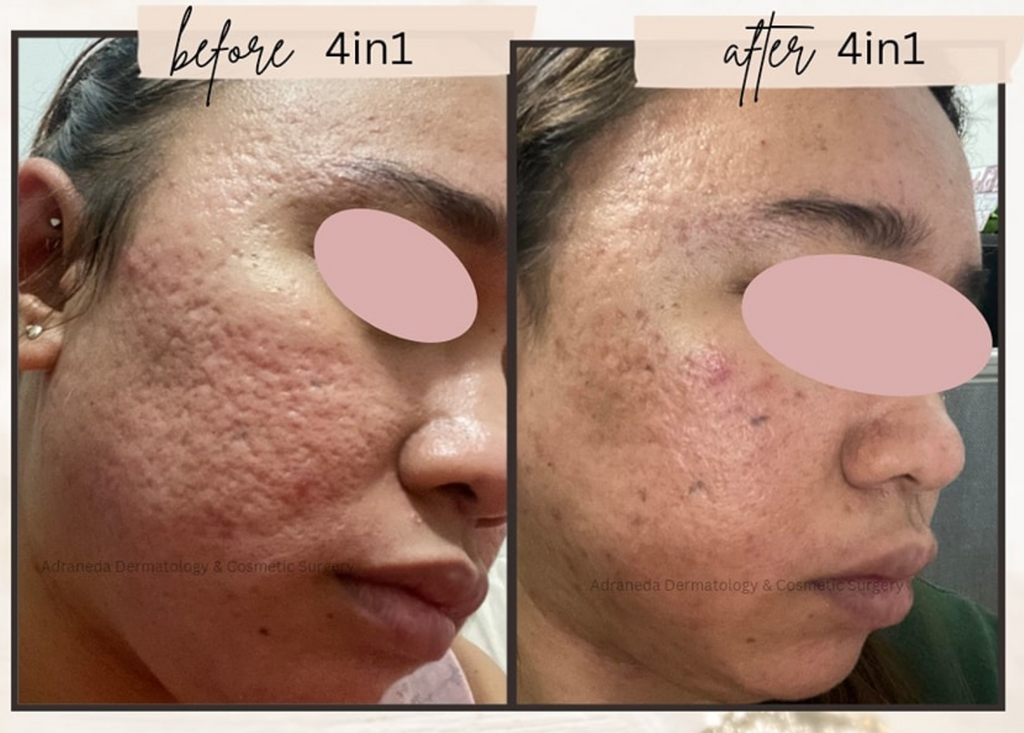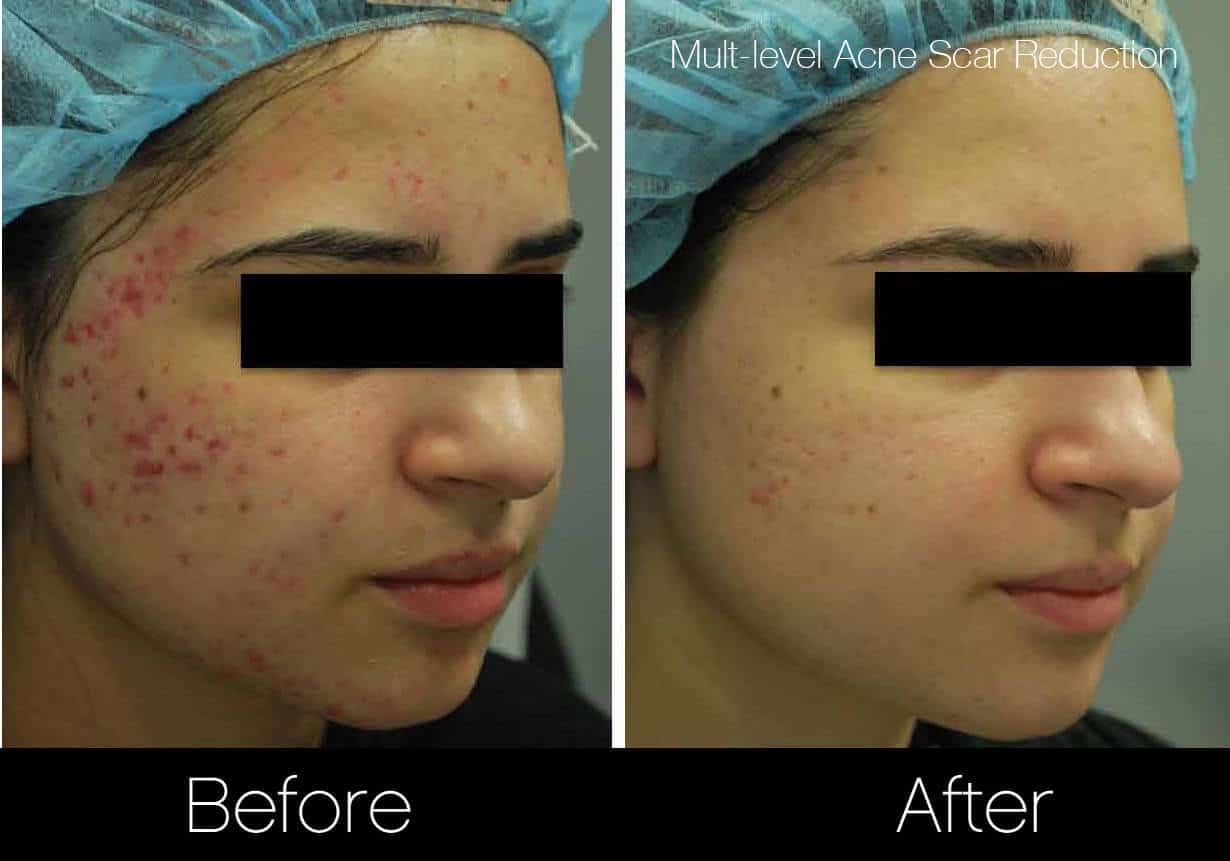Sensitive Skin? Discover the Right Acne Scars Treatment for Your Demands
Sensitive Skin? Discover the Right Acne Scars Treatment for Your Demands
Blog Article
Recognizing the Different Skin Disease and Effective Treatment Alternatives for Acne Scars
Acne marks represent a complex interplay of skin problem that considerably effect people' self-confidence and general skin wellness. Comprehending the unique kinds of acne marks-- atrophic and hypertrophic-- together with their underlying causes, is crucial for establishing reliable therapy methods. Various healing options exist, varying from sophisticated skin-related treatments to all-natural remedies. Nevertheless, the efficacy of these treatments typically rests on personalized evaluations by qualified experts. As we discover the landscape of acne scar management, it comes to be evident that the journey towards more clear skin may involve even more than simply topical services.
Types of Acne Scars

On the other hand, hypertrophic scars result from an overflow of collagen throughout the recovery procedure, bring about increased locations on the skin. These scars are usually solid and can differ in color, often appearing red or darker than the surrounding skin.
Comprehending these kinds of acne scars is important for creating an effective treatment strategy - acne scars. Choices may consist of chemical peels, laser therapy, microneedling, or dermal fillers, customized to the details mark kind. A comprehensive examination with a skin doctor can help establish the most ideal intervention, taking right into account the person's skin kind, mark seriousness, and overall skin wellness
Reasons of Acne Scarring
Scarring occurs as a result of the body's natural healing response to swelling and injury brought on by acne sores. When acne forms, it triggers an inflammatory reaction, causing the launch of numerous cytokines and development variables that advertise recovery. This process can often lead to too much tissue development or poor fixing, resulting in scars.
The primary root causes of acne scarring consist of the intensity of the acne itself, period of the lesions, and specific skin kinds. Serious inflammatory acne, such as blemishes and cysts, is more most likely to cause scarring because of deeper cells damage. Additionally, improper handling of acne sores, such as pressing or selecting, can worsen tissue injury and inflammation, raising the probability of scarring.
Genetic predisposition additionally plays a substantial function; individuals with a family members history of scarring go to a greater threat. Skin type and color can affect mark formation, as darker skin tones might experience post-inflammatory hyperpigmentation, while lighter skin might develop atrophic scars.
Inevitably, understanding these causes is necessary in managing acne and reducing the capacity for scarring.

Treatment Alternatives for Scarring
Efficient treatment options for acne scarring vary depending on the kind and seriousness of the marks. Normally categorized into atrophic, hypertrophic, and keloid marks, these conditions need tailored approaches for ideal outcomes.
For atrophic scars, which are defined by a loss of cells, treatments such as chemical peels, microdermabrasion, and laser treatment are generally utilized. These approaches promote skin renewal and promote collagen manufacturing, consequently enhancing skin texture. Subcision, a minimally intrusive procedure, can likewise work by breaking up coarse bands beneath the skin.
Hypertrophic and keloid scars can be a lot more testing to treat. Alternatives include corticosteroid injections to decrease swelling and flatten the scars. In many cases, cryotherapy or laser therapy might be advised to reduce their look.
Surgical options are available best site for severe scarring, where excision or skin grafting may be essential. It's crucial for individuals to speak with a dermatologist to evaluate their particular scar kind and review the most appropriate treatment strategy. Integrating numerous therapies typically yields the most effective outcomes, ensuring that each individual's one-of-a-kind skin problem is dealt with properly.
Natural Remedy and Natural Solutions
All-natural services and natural home remedy can give an accessible strategy for individuals seeking to boost the appearance of acne marks (acne scars). Different components discovered in the home cooking area have actually demonstrated potential benefits in boosting skin structure and promoting healing

Another reliable option is lemon juice, which functions as a natural exfoliant and can lighten hyperpigmentation. Nonetheless, it needs to be utilized meticulously, as it may create photosensitivity. Oat meal masks are additionally valuable; their gentle exfoliation can help eliminate dead skin cells while comforting irritability.
Important oils, such as tea tree oil and lavender oil, can even more sustain scar recovery as a result of their antimicrobial residential properties. It is vital to do a patch examination prior to using any type of solution to make certain there are no adverse responses. These all-natural solutions can be a complementary method in the trip to reduce acne marks.
Preventing Future Scarring
Taking on an aggressive technique to skincare can dramatically lower the danger of developing future acne marks. One of the essential strategies is to handle acne successfully as it develops. This entails utilizing non-comedogenic skincare items and medications prescribed by dermatologists that target acne without aggravating the skin. Normal cleaning, exfoliation, and hydration can help maintain skin wellness and avoid blocked pores.
Additionally, staying clear of the lure to press or select acne lesions is vital, as this can bring about swelling and subsequent scarring. Instead, people Continue need to concentrate on using topical therapies that advertise healing and lower inflammation. Ingredients such as salicylic acid, benzoyl peroxide, and retinoids are known for their effectiveness in managing acne and reducing marks.
Sun defense is one more important part; exposure to UV rays can dim marks and impede recovery. Therefore, using a broad-spectrum sunscreen daily can mitigate these impacts - acne scars.
Last but not least, keeping a healthy and balanced diet regimen rich in antioxidants and staying moisturized supports skin regrowth. By implementing these precautionary steps, people can dramatically lower their danger of future scarring and advertise overall skin health.
Verdict
In verdict, a thorough understanding of acne marks, incorporating both atrophic and hypertrophic types, is important for reliable therapy strategies. Examination with a dermatologist stays essential to create customized approaches that consider private skin kinds and mark severity, inevitably improving the effectiveness of scar monitoring techniques.
Acne scars represent an intricate interplay of skin problems that substantially influence people' self-worth and general skin health and wellness. The 2 primary classifications of acne scars are atrophic and hypertrophic scars. These scars are more categorized right into three subtypes: ice pick scars, which are deep and slim; boxcar marks, which are wider and have well-defined edges; and rolling marks, which create a wave-like look due to unequal skin structure.
An extensive examination with a dermatologist can help determine the most proper intervention, taking right into account the person's skin type, mark extent, and overall skin wellness.
Appointment with a skin doctor continues to be important to devise individualized methods that consider specific skin types and mark intensity, inevitably enhancing the effectiveness of scar administration strategies.
Report this page